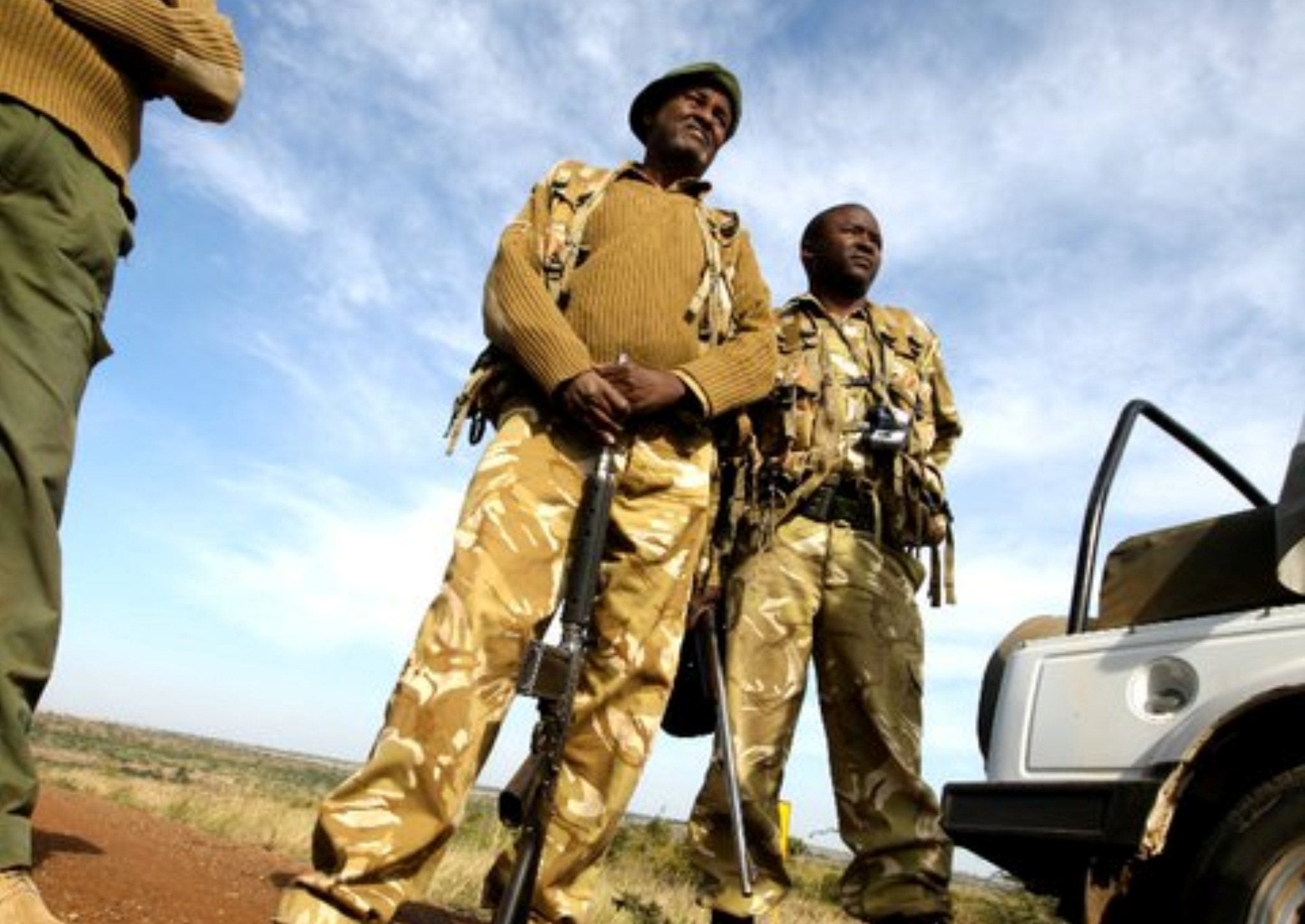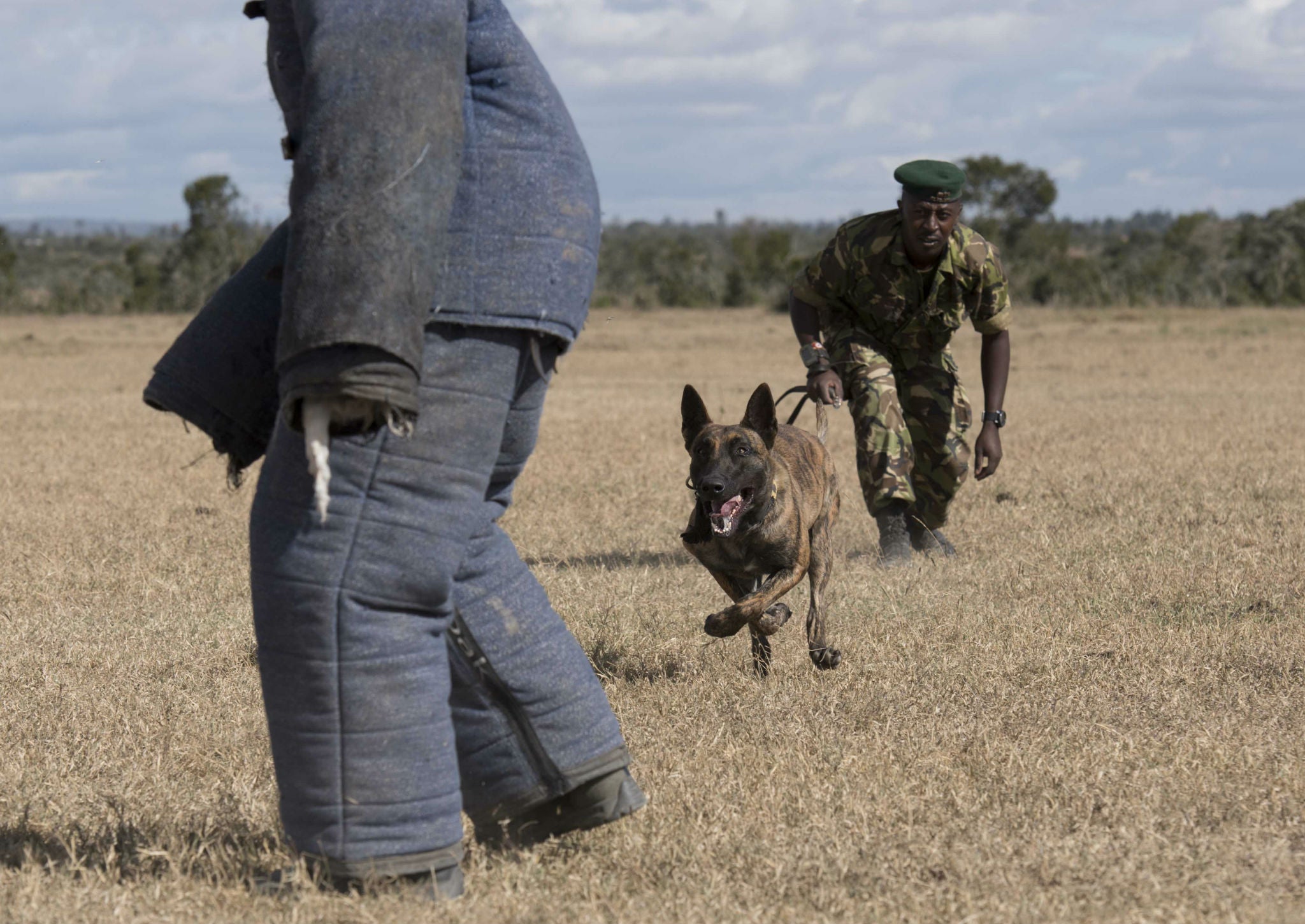Rapid response: the highly trained defence force saving Kenya's elephants
With helicopters and high-tech weaponry, Laikipia County's Rapid Response Team is taking the fight to poachers in Kenya

Your support helps us to tell the story
From reproductive rights to climate change to Big Tech, The Independent is on the ground when the story is developing. Whether it's investigating the financials of Elon Musk's pro-Trump PAC or producing our latest documentary, 'The A Word', which shines a light on the American women fighting for reproductive rights, we know how important it is to parse out the facts from the messaging.
At such a critical moment in US history, we need reporters on the ground. Your donation allows us to keep sending journalists to speak to both sides of the story.
The Independent is trusted by Americans across the entire political spectrum. And unlike many other quality news outlets, we choose not to lock Americans out of our reporting and analysis with paywalls. We believe quality journalism should be available to everyone, paid for by those who can afford it.
Your support makes all the difference.Every year 30-40,000 elephants are killed to supply ivory to illegal markets in Asia. In 2012, the Laikipia-Samburu Ecosystem, located in north central Kenya and considered one of East Africa's most spectacular wildernesses, became one of the worst hit areas in Kenya as the poaching crisis swept across the continent.
Yet four years on poaching levels have decreased in the area by as much as 90%. This is down to the success of the Anti-poaching Rapid Response Team (RRT) – a team of highly trained rangers working under the authority of the Kenya Police and supported by the Kenya Wildlife Service & Criminal Justice System.
The idea came about after an emergency conference in 2011 held by the conservation charity, Space for Giants, in response to the poaching crisis.
Together local community conservancies, the Kenya Wildlife Service and Kenya Police decided to form a team of rangers that could respond quickly and efficiently to poaching incidents across the landscape. It was this collective response and solid working relationships between stakeholders that has been at the heart of the success of the RRT.

The Rapid Response Team is based at Ol Pejeta Conservancy, a 90,000-acre wildlife conservancy in Laikipia County, which has one of the highest number of black rhinos in East Africa and is home to the only 3 northern white rhino left in the world.
The team comprises armed Kenyan Police Reservists. In the event of a major armed poaching incident, the team is collected by helicopter and deployed to the site of an incident. All deployments are authorised by the Kenya Police.
“What is unique about these teams is their training and the use of a helicopter allowing them to reach the incident sites sometimes within minutes” says Daniel Mwaniki, Deputy manager of Security at Ol Pejeta.
“In my opinion this success can be emulated in other elephant range states provided they have highly trained, motivated and equipped rangers,” says Daniel Mwaniki.

The Giants Club, founded by the Governments of Kenya, Gabon, Botswana, and Uganda, with Space for Giants to combat the poaching crisis, is aiming to do just that.
Later this month, President Kenyatta will be hosting the Giants Club inaugural Summit and one of the key issues being discussed is scaling up the anti-poaching Rapid Response Teams in Kenya, Gabon, Botswana and Uganda.
Together, these countries contain more than half of Africa’s savannah elephants and three quarters of the continent's remaining forest elephants. If the success of the Rapid Response Teams in Laikipia can be emulated in these elephants range states then there’s a real chance of reaching the goal of the Giants Club - to protect 40,000 elephants by 2020.
On 29-30 of this month African heads of state, business leaders and conservationists will meet in Kenya at the inaugural Giants Club Summit to drive front-line protection measures and work out a co-operative frame-work for saving Africa's elephants. The Kenyan government will follow the summit by burning 105 tonnes of ivory, the largest ever amount to be burned in one go.
To find out more about The Giants Club Summit go to: http://spaceforgiants.org/giantsclub/summit
Join our commenting forum
Join thought-provoking conversations, follow other Independent readers and see their replies
Comments